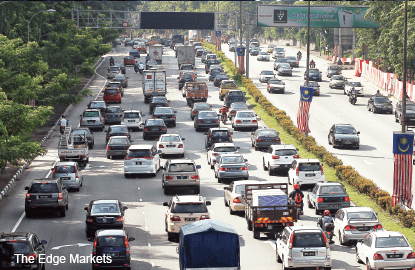
Automotive sector
Maintain underweight: The outlook for the automotive stocks under our coverage in 2017 continues to remain challenging, with few rerating catalysts in sight. Total industry volume (TIV) as of October 2016 declined by 14% year-on-year to 466,218 units, which makes up 78% and 80% of our and the Malaysian Automotive Association’s (MAA) TIV expectations for 2016.
We anticipate car sales to rev up until the end of 2016 from aggressive marketing, discounting campaigns and in anticipation of new model launches. With volatility in the ringgit against the US dollar and yen still in the picture, earnings margins for carmakers are likely to slip further, driving carmakers such as Mazda and Perusahaan Otomobil Kedua Sdn Bhd (Perodua) to raise their prices in 2017.
Price-sensitive consumers are likely to continue to trade down to more affordable models, with demand for models with high localisation content expected to remain resilient due to relative affordability. However, a weaker sales mix of cheaper models is very likely to dilute earnings margins, with strict credit evaluation of hire purchase financing applications continuing to be an issue for car purchasers.
While there were measures introduced in Budget 2017, which are expected to provide some support to car sales, we believe the measures may not be sustainable and only beneficial to selected carmakers. Our forecasts impute a TIV target of 600,000 units in 2017, which indicate minimal improvement in car sales from our and the MAA’s TIV targets (600,000 units and 580,000 units respectively) in 2016.
Our “buy” calls are for Bermaz Auto Bhd with a target price (TP) of RM2.46, DRB-Hicom Bhd (TP: RM1.71) and Hong Leong Industries Bhd (TP: RM10.60). We maintain our “sell” recommendation for UMW Holdings Bhd (TP: RM4.09), which is the largest stock under our coverage by market capitalisation.
Risks to our recommendation include a strong recovery in ringgit and a sustained improvement in consumer sentiment, which we have not imputed in our base case assumptions. Macroeconomic factors which hold sway over the sector include regulatory changes, foreign exchange trends, availability of financing and consumer behavioural patterns. — RHB Research, Dec 16